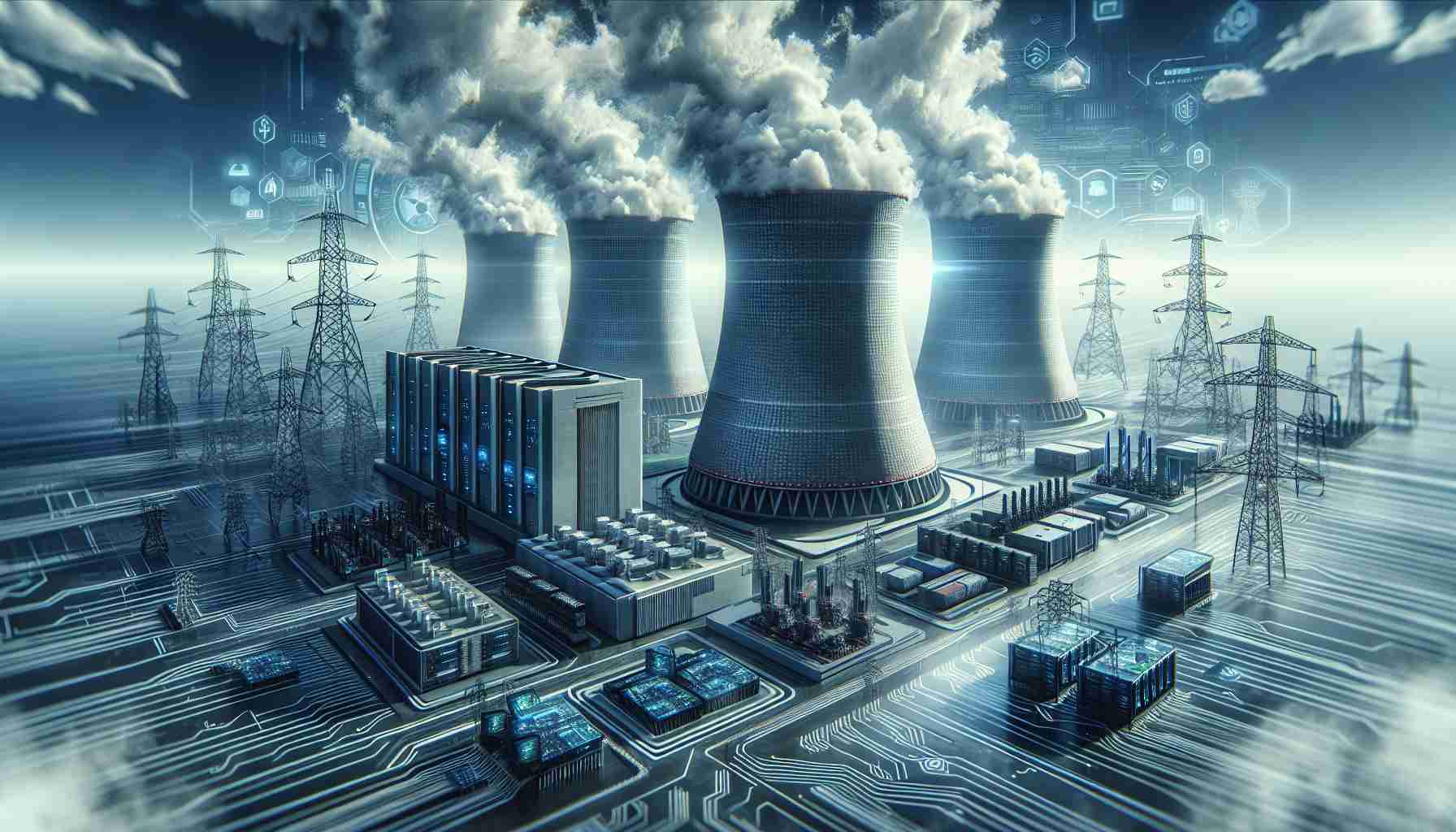In recent years, leading technology companies have begun to focus on nuclear energy as part of their strategies for sustainable operations. Amazon has taken significant steps in this direction by establishing partnerships aimed at building Small Modular Reactors (SMRs). These reactors are designed to provide a scalable and clean energy source, aligning with the firm’s ambitious goals for reducing its carbon footprint.
Matt Garman, the CEO of AWS, emphasized the benefits of nuclear power, highlighting its role in providing safe and carbon-free energy. He indicated that such initiatives also promise to generate economic benefits for nearby communities. Amazon’s collaboration with Energy Northwest is poised to create SMRs capable of initially generating 320 megawatts (MW) of power, with plans to increase capacity to 960 MW if necessary. The company is also working with industry leaders like Dominion Energy and X-energy on these projects.
Amazon is not alone in this pursuit, as competitors such as Microsoft and Google are also exploring nuclear solutions. The surge in demand coincides with the explosive growth of data centers driven by artificial intelligence and other high-energy technologies. A recent report has projected that energy use in these facilities may double by 2026, presenting significant challenges for tech companies in managing their environmental impacts.
Amazon’s substantial investments in nuclear energy highlight the urgent need to secure sustainable power sources for its expanding digital infrastructure.
Big Tech Shifts to Nuclear Energy to Meet Rising Demand
In an era marked by unprecedented technological advancements and surging energy consumption, major tech companies are increasingly turning to nuclear energy as a sustainable solution for their growing power needs. This shift represents not only a strategic move to counteract climate change but also a pragmatic response to the escalating energy demands of data centers and emerging technologies.
Key Questions and Answers:
1. Why are tech companies prioritizing nuclear energy?
Tech companies are prioritizing nuclear energy due to its potential to provide a stable, reliable, and carbon-free energy source. As data centers require more energy to support AI, cloud computing, and big data analytics, nuclear power offers a solution to meet this increasing demand without contributing to greenhouse gas emissions.
2. What challenges do companies face in transitioning to nuclear energy?
The key challenges include regulatory hurdles, public perception, and the initial financial investments required for establishing nuclear facilities. Navigating the complex landscape of nuclear regulation and ensuring safety is paramount, which can lead to delays in project initiation and deployment.
3. What are the public concerns surrounding nuclear energy adoption by tech companies?
Public concerns often revolve around safety, historical nuclear accidents, radioactive waste management, and the potential for catastrophic failures. Addressing these concerns through transparent communication and education is crucial for garnering public support.
Advantages and Disadvantages:
Advantages:
– Low Carbon Emissions: Nuclear energy produces minimal greenhouse gases during operation, making it a viable option for tech companies aiming to reduce their carbon footprints.
– Reliable Energy Supply: Unlike renewable energy sources such as wind and solar, which are intermittent, nuclear provides a steady and reliable power supply essential for the continuous operation of data centers.
– Economic Growth Opportunities: The construction and operation of nuclear facilities can create jobs and stimulate economic development in local communities.
Disadvantages:
– High Initial Investment: The upfront costs associated with building nuclear plants are significantly high compared to other energy sources, which may pose a financial risk for tech companies.
– Long Lead Times: The lengthy process of regulatory approvals and construction can delay the availability of nuclear energy, making it challenging for companies to meet their immediate energy needs.
– Nuclear Waste Management: The safe disposal and management of nuclear waste remain unresolved issues, raising environmental concerns that could undermine public support.
Conclusion:
As the demand for energy continues to rise, particularly from technology giants, a collective shift towards nuclear energy appears to be an essential strategy for ensuring a sustainable and reliable power supply. While significant challenges remain, the potential to meet energy needs while reducing carbon emissions presents an attractive route for Big Tech companies. Continuous dialogue regarding safety, environmental impact, and economic benefits will be vital as this transition unfolds.
For further insights into renewable energy and nuclear technology, visit Energy.gov and NRC.gov.









